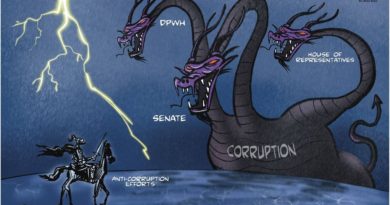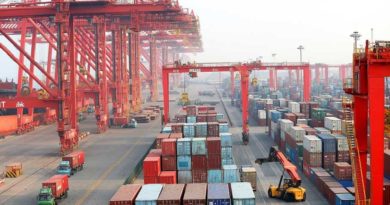COLUMN: GET REAL By: Solita Collas-Monsod – Fight the evil

Take a look around you, Reader. You are more than likely to see men and women who are honest, upstanding citizens, people who would go out of their way to help other people, to contribute to a good cause. And yet we are a country described as one whose people have an inherently flawed moral character, what with laws broken with impunity.
Indeed, our country has also been described as dysfunctional, with a cacique or a feudal system at the same time as we consider it a democracy. A country which has everything it takes to be among the best-performing countries in the world, yet has been overtaken by once-poorer neighbors (Thailand, Indonesia). A country of people active in their faith and religion, and at the same time a country which ranks 111th out of 173 countries in terms of corruption.
But then, transport our Filipino abroad, and she becomes a model citizen, productive and law-abiding, appreciated by her employers and her neighbors. In other words, the morally flawed, dysfunctional society disappears with an airplane ride.

Is there an explanation for this seeming inconsistency?
Social psychologist Philip Zimbardo (of the Stanford Prison Experiment) has devoted more than three decades of research on why people behave the way they do. His 2007 best-selling book, “The Lucifer Effect: Understanding How Good People Turn Evil,” offers us one.
He finds that people’s behavior are affected by circumstance rather than any innate set of values—which kind of clarifies why, in 2008, a nation was outraged at Mar Roxas’ one single “P—ina,” while in 2016 and thereafter, Rody Duterte sprinkles his speeches with “P—ina” like it was going out of style.
Zimbardo’s finding that people’s behavior are affected by circumstance rather than any innate set of values has a corollary: that the line between good and evil is not one hard, impermeable line, where one stands on either side of that line and can therefore be labeled good or bad. The line is permeable, and Zimbardo calls this the “banality of evil”: Under certain circumstances and social pressures, ordinary people can commit acts that would otherwise be unthinkable.
What are these circumstances and social pressures that grease the slippery slope to evil?
First is when we mindlessly take the first small step (cheating in small things). A second social process is when we dehumanize others, or think that they are inferior.
Third is when we deinviduate ourselves, like when we are in a large group, so that there is physical anonymity. Fourth is when there is diffusion of personal responsibility—when one thinks he will not be held responsible. Fifth is blind obedience to authority. Sixth is uncritical conformity to group norms.
The seventh is passive tolerance to evil through inaction or indifference. Remember, “all it takes for evil to triumph is for good people to do nothing.”
ADVERTISEMENT
And that’s how ordinary, so-called good, God-fearing people can move from good to evil. And that is a better explanation for why we are where we are now, than some crap about a moral or cultural flaw.
So, then, is the Philippines damned for all time to being a basket case? The answer, supplied by Zimbardo again, is NO. Not by a long shot.
Because the flip side of the banality of evil is the banality of heroism. Just as ordinary people can commit unthinkable acts, or do nothing when they are committed, so, too, can ordinary people, and even so-called “bad” people, perform heroic acts—which means taking action, rather than passive acceptance, and doing it for others.
So, Reader, we are faced three Paths: Path 1: Be an active perpetrator of evil in this country (and join some politicians we all know). Path 2: Do nothing, and let evil triumph, which is why the Philippines is where it is. Or, Path 3: Fight the evil.
And to those well-meaning friends and loved ones who urge us not to get involved, to just mind our own business, to keep our heads low, we must give this as an answer: The Philippines is MY business. “I am only one, but I am one. I cannot do everything, but I can do something. What I can do, I ought to do, and with the grace of God, I will do it.”
 All photographs, news, editorials, opinions, information, data, others have been taken from the Internet ..aseanews.net | [email protected] |.For comments, Email to :D’Equalizer | [email protected] | Contributor
All photographs, news, editorials, opinions, information, data, others have been taken from the Internet ..aseanews.net | [email protected] |.For comments, Email to :D’Equalizer | [email protected] | Contributor








